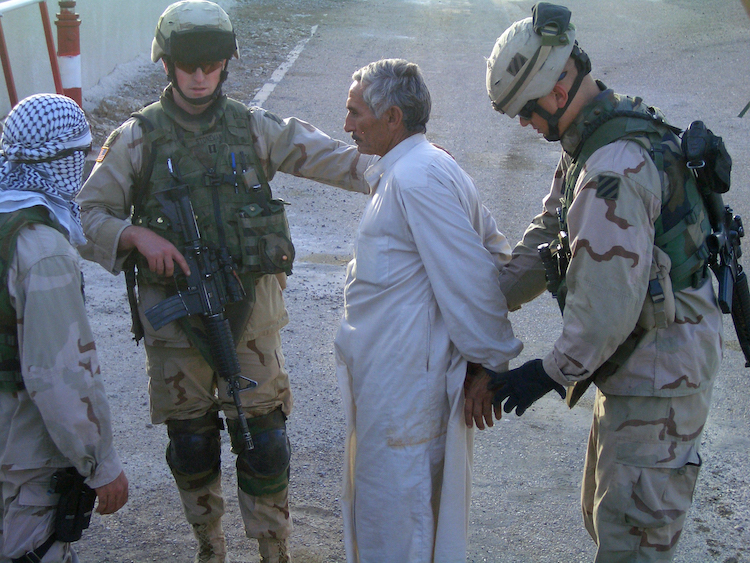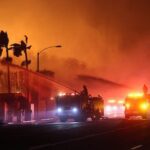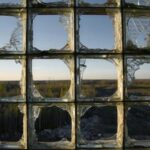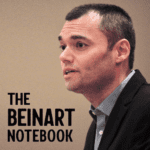I cannot trust a man to control others who cannot control himself.
—General Robert E. Lee
The day ambled on until it became night. The sun went down, but its heat remained, and we continued to swelter in the dark as we guarded the entrance to the small Iraqi village. With the Humvee’s engine off, we sat with the doors open in an attempt to circulate some of the stagnant and fetid air and to cool us off. It didn’t work. Whenever we got out of the vehicle to stretch our legs or talk to a villager, a sweaty imprint of our buttocks and legs remained on the fabric seats, mirroring our equally soaked pants, which gave the curious locals the impression that we had all pissed ourselves.
We had been in Iraq since January and were familiar with the area and its inhabitants. For nine months, we had patrolled these streets on foot and in our vehicles, getting to know the Iraqis who lived here and this part of the desert where they scraped out a living. Most of them were neutral toward us, some were friendly, and some were actively trying to kill us.
Four days before this mission and about two miles from where I had positioned our vehicles, an improvised explosive device (IED) had killed a special forces sergeant and seriously wounded two of his buddies. Earlier in the year, another IED killed a soldier a little farther away. Two of these roadside bombs had detonated on patrols I had been leading, again quite close to where we were operating that day. IEDs were the signature weapon of the occupation of Iraq, and they could be anywhere and could kill or maim you without warning. We looked for them everywhere, knowing that we were betting our lives and our limbs on spotting them before they went off.
At about ten o’clock in the evening, I saw the Iraqi army trucks we had been tasked to escort in the distance. They were a mixture of new Toyota pickups and old US Army two-and-a-half-ton trucks—large, green, and ancient.
It was October 15, 2005, and the people of Iraq had spent the day voting on whether to ratify the new Iraqi constitution. If they accepted it, a general election would be held by the end of the year, and a new, sovereign Iraqi government would take over administering the country. It was an important step in Iraq becoming a democratic state and therefore for the United States drawing down its presence. In short, the referendum was a big deal.
The election was over, and along with it, our mission to guard the village’s polling site. I led my four Humvees toward the Iraqi vehicles. Once we linked up, I sent two of my trucks to drive behind their last vehicle, and my Humvee and another pulled a U-turn so that we were leading the combined convoy back to the relative safety of Forward Operating Base (FOB) Normandy, our home away from home. We retraced our steps down the road we had just driven on toward the intersection we had occupied all day. I peered ahead at the asphalt illuminated by our headlights, looking for something that might save our lives or our legs or those of the guys driving behind us. The darkness and the dust, the day’s fatigue and the heat all conspired to conceal a threat that could come from anywhere or might not exist at all, and that was the rub. You had to be on your game every minute of every day because you never knew where that threat was going to come from.
As we drove up to the crossroads, I saw it in the middle of the road.
“Stop, stop, stop! IED right fucking there!” I’ve noticed that when I was stressed and my brain became overwhelmed, I repeated things three times. This was one such occasion.
My driver slammed on the brakes, bringing the Humvee’s six tons to an abrupt halt and throwing us all against our seat belts. The bomb had been planted exactly where my Humvee had sat all day. It occurred to me that the insurgents who had planted it must have been watching us all day. They were hiding close enough that they were able to get on the road and dig a hole down to six inches in the fifteen minutes it had taken us to meet the Iraqi vehicles and turn around. It was only because we hadn’t driven any further that they hadn’t had enough time to bury the IED and conceal it further. If they had, I’m not sure I would have seen it. We would have driven right over it, and that would probably have been the end of my story. This realization piled onto the day’s frustration.
The convoy stopped behind my Humvee. I gave a short report over the radio to let everyone know what I had seen and sent Specialist Eric Schwan and Elvis, my interpreter, to brief the Iraqi commander. I then called for a bomb disposal team to come disarm the IED and Apache helicopters to provide security for our convoy while we sat on the road, exposed. No sooner had I stopped talking than Sergeant Zelaya broke in, his voice rushed and excited.
“Six, this is two. I got a vehicle to our rear that just pulled a u-ey when it saw us and is now driving away fast. Permission to go after him, over?”
“Two, six, roger,” I said. “Break. Guidons, mount up and follow two. Let’s get this bastard.”
Guidons meant everybody. All four trucks fired up, turned around on the raised, asphalt road, and accelerated after the fleeing car. I got on the radio to the Apache pilots who had just arrived and told them what we were doing. I saw them immediately break out of the lazy circles they had been flying above us, turn, and descend toward the car’s headlights. The Apaches were flying with their lights out, so the effect of them passing over us was felt more than seen. A huge, dark shadow the size of a school bus elbowed its way through the night, pushing hot exhaust down on us as it sped toward the hapless Iraqi car.
As soon as both Apaches passed it, the lead pilot abruptly stopped and seemed to stand his aircraft on its nose about ten feet above the road and a hundred meters in front of the car. He then pivoted with the nose in place and swung the aircraft’s tail around 180 degrees where it stopped and hovered, facing the car. He turned on the helicopter’s spotlight, blinding the driver and forcing him to stop. If the driver had kept going, I have no doubt the pilot would have shot him. Given that Apaches were designed to destroy Soviet armored vehicles and are equipped with a 30 mm chain gun, he would have shredded the Toyota and its occupants.
The Apaches’ presence allowed us to catch up with the Toyota and surround it. We pulled the driver out of his car and searched both. Nothing, but that proved nothing. We had recently been issued state-of-the-art explosive detection kits, the same kind the FBI used to determine whether a suspect had been handling explosives. In an elaborate ritual, Schwan sprayed the man’s palms with a chemical from an aerosol can and then waited exactly five minutes before spraying them with the contents of a second can. He waited another five minutes, opened a packet that looked like a wet wipe but was actually a piece of sterilized gauze treated with a third chemical, and wiped it across both of the man’s palms. All of this was done in silence as the Iraqi man watched.
In the glow of the Humvee’s headlights, we watched as the white gauze slowly darkened. It kept getting darker until it was a deep gray color. Schwan held it next to a comparison chart: different colors meant different chemicals. Different chemicals meant we’d either let you go or get upset with you. The Iraqi stared at the chart, trying to divine its meaning, trying to see his fate on the laminated paper. Seeing nothing, he looked for clues in our faces, but there were none there. Nothing, until Schwan held the gauze up to me.
“Ammonium nitrate, sir.”
Explosives. That was what I had been waiting for: evidence, proof beyond reasonable doubt. The day’s stress and fatigue—no, the stress and fatigue of nine months of being hit without being able to hit back—erupted from me and into the man’s face.
“You motherfucker! I’ve got you!” I pointed to the piece of gauze Schwan was holding up. “See that? Guilty! I’ve got you, you son of a bitch! You are fucking done!”
As Elvis translated my accusation into Arabic, I took the four square inches of white gauze that had proven the man’s guilt to me and jabbed it in his face. Undeniable in the middle of it was a dark gray smudge, the result of rubbing it on his sweaty palm.
“No, no! I didn’t do it!” The little man had started crying.
I didn’t speak his language, but I didn’t have to wait for Elvis to translate his words. I knew what he was saying. “See this? Explosives. You planted that bomb, and now I’ve got you. I’ve got you, motherfucker! You are truly fucked.” I paused between the last words for emphasis and then shoved the man backwards—hard—onto the cattle guard on the front of the Humvee.
With this last action by me, reason had left the building, and the Iraqi man was in a dangerous place. Seeing me cross a line by putting my hands on the detainee, the two soldiers on either side of him took advantage of the opportunity I had tacitly given them and shoved him back and forth in an impromptu game of human ping-pong. I let them push him a couple of times before I stepped in and grabbed him by his collar.
His hands cuffed, his eyes streaming, his face screwed up in a pathetic mask of innocence and protestation, and his pleas falling on deaf and foreign ears, he had few outlets of expression left. So, he pissed himself.
I think if you asked most people who know me, they would say I’m not a thug. How then did I come to threaten and shove a restrained, submissive, terrified little Iraqi man around in the middle of the night, in the middle of the desert? I didn’t join the Army to throw my weight around and hurt people for no reason, but months of frustration, of being shot at and blown up by a faceless enemy who never revealed himself culminated on this anonymous stretch of road in the middle of Diyala Province. I was seething. I wanted to beat the shit out of this guy more than anything in the world, but as much as he deserved it and as certain as I was that he deserved it, I knew I couldn’t. First, it was just wrong morally, but more importantly, it would have sent a message to my soldiers that it was okay to hurt prisoners. From there it was a slippery slope to more violence, to torture, rape, and murder. Discipline, like integrity, is easy to lose, and once you’ve lost it, you can’t get it back. By losing control of myself, I would have lost control of my unit, and then I wouldn’t be the commander anymore. That’s how an army becomes an armed mob.
People sometimes ask me, “What did you learn when you were in the Army or in Iraq?” Well, here’s something I learned that night that unless you’re a sociopath, it’s actually quite hard to hurt someone who is completely submissive. The insurgent’s tears and loss of bladder control didn’t cause me to feel pity, only to lose any respect I still had for him. How could you hurt someone so pathetic? He wasn’t even worthy of my anger or hatred anymore.
I told the two soldiers with me to put him in a Humvee. We would take him back to the FOB and hand him over to the Iraqi army to charge and punish him. We left his car on the road where he had stopped it with the keys still in the ignition. I didn’t care if someone stole it; he could consider it a fine. The patrol was over. Everybody had made it home with their honor intact.
About a year later, after I had returned home, I read an article in The Washington Post about the “state-of-the-art” FBI explosive detection kits we had been issued. It turned out that while the spray-and-wipe chemical method they used to detect explosives had an accuracy rate in excess of 90 percent, they could also yield false positives if they detected fertilizer. Like the kind a farmer in the Iraqi desert might use to grow some crops.
Mark Stoneman
Mark is a veteran living in Washington D.C. who served as an Army captain in Iraq in 2005.








